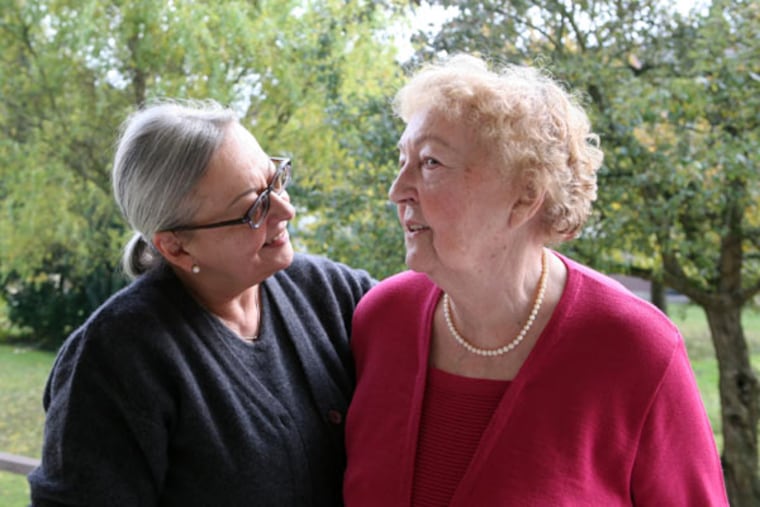A disruptive new vision of old age
As a young geriatrician, Bill Thomas questioned the quality of life of his elderly nursing home patients. It seemed boring and overly regimented to him.

As a young geriatrician, Bill Thomas questioned the quality of life of his elderly nursing home patients. It seemed boring and overly regimented to him.
He created the highly influential Eden Alternative and Green House Project models of long-term care. They emphasized personal choice and home-like settings.
Now that he's 55, Thomas is not content to slowly change the nation's nursing homes and assisted-living facilities.
He wants to change American society itself.
Thomas, who says he is now a "full-time advocate for a new vision of old age," will bring his Age of Disruption bus tour to the University of Pennsylvania campus on April 24. An animated speaker, he'll be performing what he calls "nonfiction theater" - using theatrical methods to explore nonfiction ideas - with musician Nate Richardson.
Thomas breaks elderhood into two chapters: young old (60 to 80) and old old. For now, they're both infected by our societal obsession with youth, he says. Our medical models focus on supporting people as their aging bodies and brains decay. We most celebrate older people when they act young, the "102-year-old sprinter who set the world record for the 200-meter dash," Thomas said.
The message from that is, "This person is admirable because they're not declining as much as everybody else."
Thomas doesn't deny that decline is a big part of aging, but he says we're missing the tremendous potential for growth after 60.
"Aging is the least understood part of the human life span and, potentially, the richest and most meaningful," he said in a recent interview. "Aging is an active, growth-oriented process and not a passive, decline-oriented process."
Thomas' most recent book, Second Wind: Navigating the Passage to a Slower, Deeper and More Connected Life, will soon be in paperback.
Thomas said he has himself begun slowing down. He once felt a "burning sense of ambition" that is now waning. "That feeling of ambition doesn't burn like it did before, and that actually feels better to me," he said.
Though he used to have the "titanic" energy to travel with little notice - he once flew to Australia, gave a speech, and flew right home - he now sees the well-planned bus tour as a way to expose others to his ideas more efficiently.
He remains interested in elder housing and wants cities to think about how they'll create more choices for their aging residents. Aging in a community is not just about staying in the house you've always lived in. Throughout history, it was rare for people in their 80s and beyond to live alone. Typically, they have lived with or very close to relatives.
Thomas' generation likely will do it differently. "We also need to live very close to others in old age because aging is a team sport," he said. "But we're going to do it with people we're not related to by blood."
He thinks the focus on the cost of supporting the elderly is misplaced. "What older people need is access to social capital," he said. They need to be surrounded by others "who are willing to support each other and give to each other and nurture each other in a way that is noneconomic."
Thomas will speak from 7 to 8:30 p.m. Friday at the Perelman Quadrangle Hall of Flags, 3417 Spruce St., Philadelphia. Tickets are $25. Proceeds will benefit New Courtland Senior Services, which serves older people in Philadelphia. For more information, go to /http://drbillthomas.com.
215-854-4944
@StaceyABurling